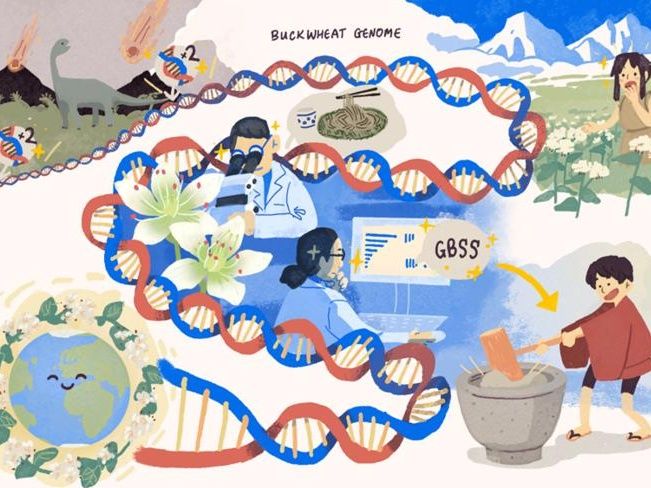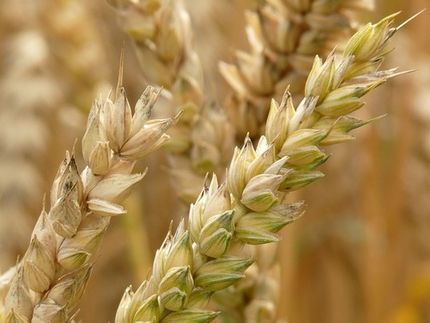De-code of the crop
High-precision genome sequencing of buckwheat breeds hope for future harvests
Advertisement
A research group led by Kyoto University's Graduate School of Agriculture has deciphered buckwheat's high-precision chromosomal-level genome sequence, a key step toward unraveling the evolution of the buckwheat genome and the origins of the cultivated crop.

Present genomic sequencing uncovers domestication history and opens up future opportunities for breeding
KyotoU/Robin Hoshino
By altering specific genes using a method independent of common genome-editing techniques, the researchers successfully developed a self-fertile buckwheat variety as well as a new type of the crop with a sticky, mochi-like texture. This breeding method may contribute to a more diverse range of orphan crops than what is possible with existing genome editing technologies.
With the world's population predicted to reach 9.7 billion by 2050, increasing dependence on three major grain crops -- rice, wheat, and corn -- has raised interest in less-common orphan crops. Deciphering these crop genomes using next-generation sequencing technologies may promote their efficient breeding, representing a crucial step toward achieving the United Nations' Sustainable Development Goals of 'Zero Hunger', 'Good Health and Well-Being', and 'Responsible Consumption and Production'.
The international research team that made these findings is,led by Yasuo Yasui from the Graduate School of Agriculture at Kyoto University, includes RIKEN, Japan's National Agriculture and Food Research Organization, Chiba University, Kyoto Prefectural University, Kazusa DNA Research Institute, The Graduate University for Advanced Studies or SOKENDAI, Yunnan Agricultural University, and the University of Cambridge.
Original publication
Other news from the department science

Get the food & beverage industry in your inbox
By submitting this form you agree that LUMITOS AG will send you the newsletter(s) selected above by email. Your data will not be passed on to third parties. Your data will be stored and processed in accordance with our data protection regulations. LUMITOS may contact you by email for the purpose of advertising or market and opinion surveys. You can revoke your consent at any time without giving reasons to LUMITOS AG, Ernst-Augustin-Str. 2, 12489 Berlin, Germany or by e-mail at revoke@lumitos.com with effect for the future. In addition, each email contains a link to unsubscribe from the corresponding newsletter.





























































